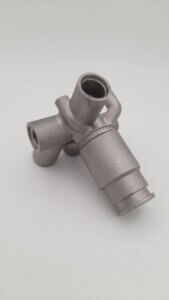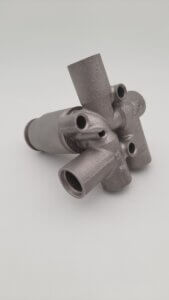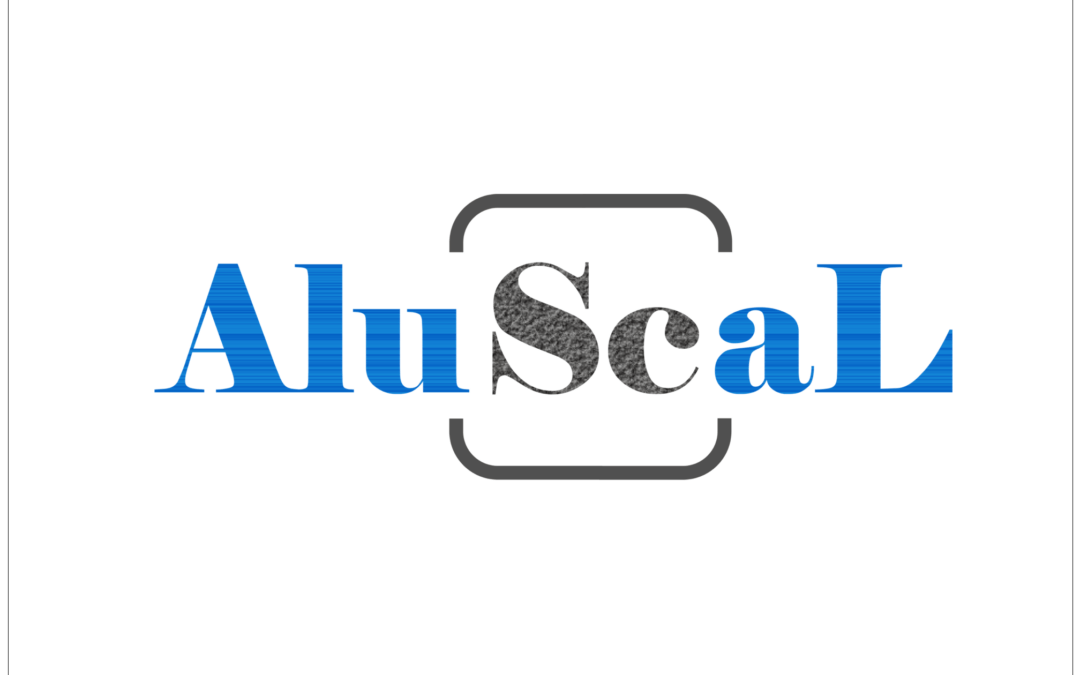Lightweight construction with high-strength aluminium-scandium alloys for hydrogen mobility, aviation and vehicle construction
In view of the expansion of the use of hydrogen as an energy supplier in aviation, rail vehicles, shipping and road transport, continuous innovations are required in order to play a leading role in global competition. Argo-Anleg GmbH is a project partner in numerous development and research projects, focusing on the development of practical applications for hydrogen mobility.
In the AluScaL project, Argo-Anleg is making a small but significant contribution to lightweight construction in aviation with high-strength aluminium-scandium alloys. The hydrogen pioneers from Wesel are developing a hydrogen valve that will be tested in pilot applications. The valve is used specifically for hydrogen tanks as a manual on-tank valve (MOTV).
Argo-Anleg showed a first prototype at the Hanover Fair. “The new valve met with great interest from the visitors. This shows us that we are on the right track with this development,” says Jan Andreas, Managing Director of Argo-Anleg GmbH. Another indication that the company has long since established itself in the circle of European hydrogen technology experts was also the invitation to the 3rd European Lightweighting Network in Stockholm.


Developed by Argo-Anleg manufactured by Rosswag: the prototype of the hydrogen valve in lightweight construction.
The AluScaL project is funded by the German Federal Ministry for Economic Affairs and Climate Protection and supervised by Project Management Jülich. It aims to investigate the potential of scandium (Sc) as a strength-increasing element in aluminium alloys and to demonstrate it using an application from the field of hydrogen mobility as an example.
The aim of the AluScaL project is to present the entire process chain from raw material extraction, alloy development and production to the component and to demonstrate its suitability for lightweight construction and hydrogen applications.
Scandium is a well-known alloying element that can significantly improve the mechanical properties of aluminium alloys, especially the strength properties. Until now, the widespread use of aluminium-scandium alloys (Al-Sc alloys) has been hindered by the high price of scandium and the monopoly position of some countries in its supply. In recent years, however, Canadian, Australian and European initiatives have opened up new deposits and developed new processes for scandium extraction. A recently discovered deposit of rare earths, including scandium, in Kiruna in northern Sweden could lead to a significant reduction in scandium costs and thus enable broader fields of application. In addition to Argo-Anleg, other specialised project partners are involved:
- The semi-finished product and powder production for the valve is being tested by Gränges Powder Metallurgy GmbH.
- The actual component production is carried out in cooperation with Rosswag GmbH and LEIBER Group GmbH & Co. KG. At Rosswag GmbH, the valve is manufactured additively, while LEIBER Group alternatively uses a classic forging process for production.
- Gühring KG also develops special cutting tools for the final machining of the valve.
- The Helmholtz-Zentrum Berlin (HZB Berlin) and the German Aerospace Center (DLR, Institute of Vehicle Concepts), both members of the Helmholtz Association, are providing scientific support for the project. HZB is responsible for alloy development and in-situ analyses, while DLR, as consortium leader, is working on the characterisation and simulation of the newly developed Al alloys.
- The project is supported by the associated partners Rio Tinto Alcan International from Canada, Recaro Aircraft Seating GmbH & Co. KG and Liebherr-Aerospace Lindenberg GmbH. Rio Tinto provides the Al-Sc Master alloy to the consortium and also supports the project with its expertise in alloy development. For the partners Recaro Aircraft Seating and Liebherr-Aerospace, the focus is on both the respective application and the transfer of technology to other industries.
Thanks to this broad-based and powerful consortium, a comprehensive evaluation of the developed alloy systems and assemblies is possible. This allows new applications to be developed and the potential of Al-Sc alloys to be fully exploited across industries. Furthermore, the project makes an important contribution to Germany’s technological leadership in the field of hydrogen technologies.
Further information can be found under the following link: AluScal
BMWi funding code 03LB3032B


